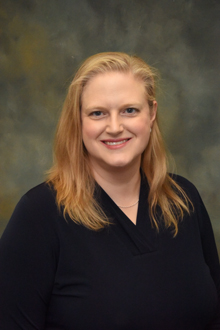Amy R Koehn, PhD, NNP-BC

Associate Professor
Neonatal Nurse Practitioner Concentration Coordinator
874 Union Ave., Room 309
Memphis, TN 38163
901-448-2828
akoehn3@uthsc.edu
Dr. Amy Koehn received her doctorate in nursing from Indiana University in 2014 and joined the UTHSC nursing faculty in 2015 as the concentration coordinator for the NNP program.
Dr. Koehn has a long history of clinical practice in level III and IV NICUs in roles both at the bedside and as a team member for neonatal air and ground transports. She received her MSN from the University of Colorado at Colorado Springs in 2001 and her BSN from Bethel College in North Newton, KS in 1993.
Dr. Koehn currently heads both the didactic and clinical portions of the NNP program; her teaching philosophy centers on achieving a solid pathophysiological understanding of neonatal disease processes and offering students a variety of clinical experiences to fully actualize the NNP role. Although currently practicing at Level IV NICU at Le Bonheur Children’s Hospital, Dr. Koehn works closely with NICUs throughout the city and their nursing leadership to engage and yield mutually beneficial relationships for both students and healthcare partners. She also current serves in an elected position on the leadership council for the National Association of Neonatal Nurse Practitioners (NANNP).
Dr. Koehn’s current research focuses on exploring the genetic components of the neonatal microbiome and the potential relationships between gut flora, enteral feedings, and the development of necrotizing enterocolitis. She is also working with a statistical geneticist to perform data mining using the STATA software program. Dr. Koehn also has extensive experience with the qualitative methodology of grounded theory, which she use in her dissertation study; a grounded theory study in which she interviewed adult ICU nurses regarding their experiences with errors and error reporting. The study resulted in the development of a theoretical model which outlined a shared, time-orientated sequence of events the nurses encountered before, during, and after an error. The model has noted similarities to Tanner’s Clinical Judgement Model, and Dr. Koehn hopes to explore this relationship in future studies.
